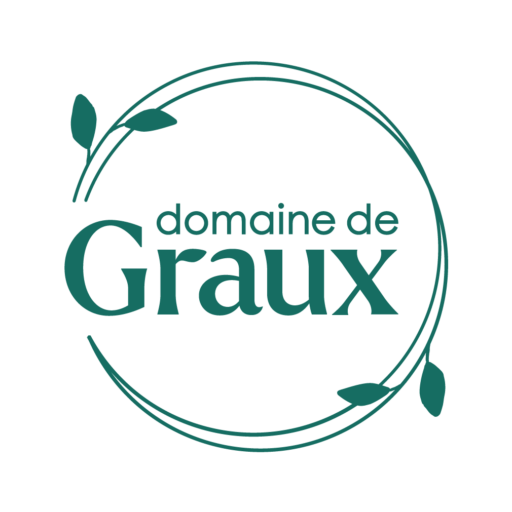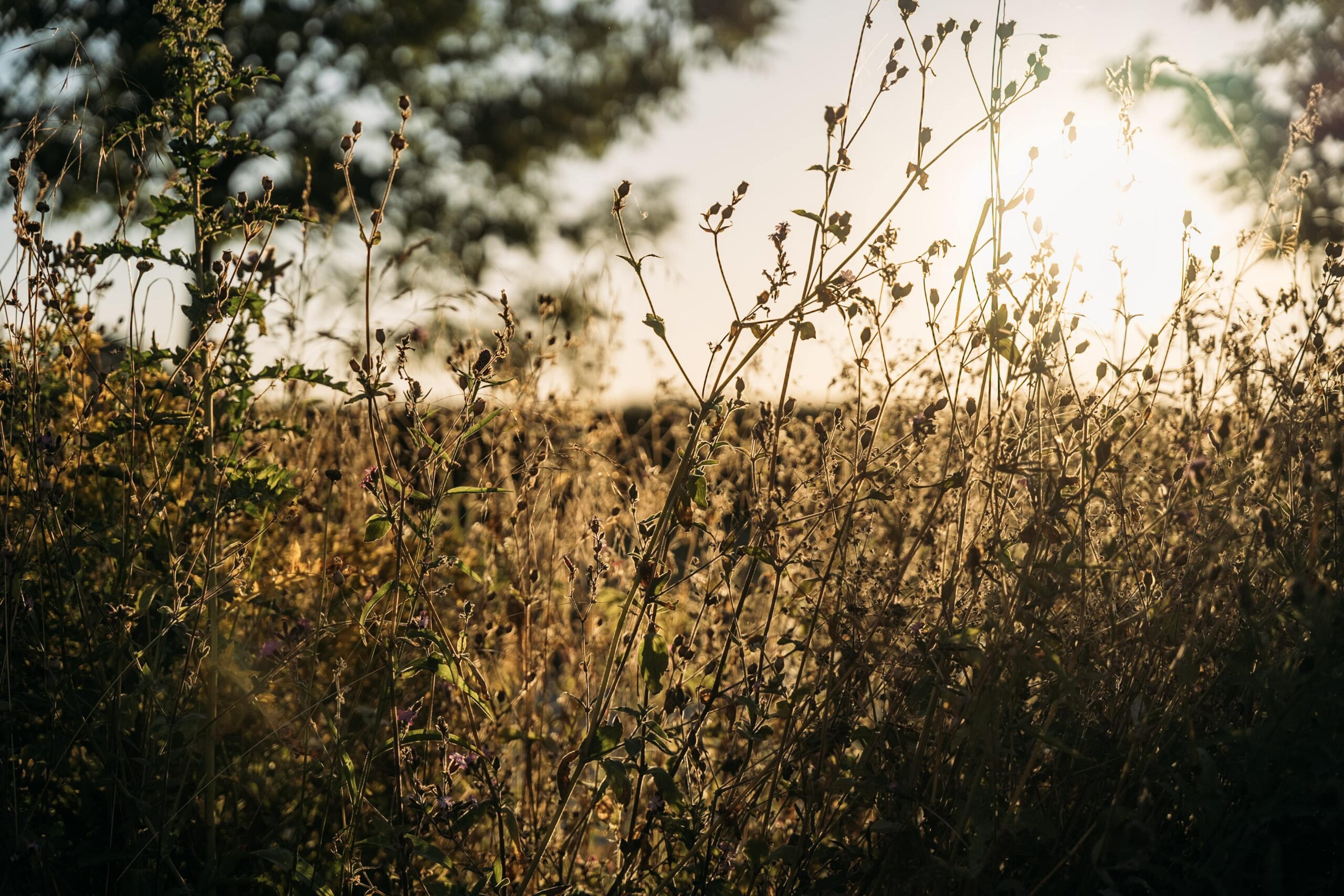“We envision a resilient food system, which operates within the planetary boundaries of the Earth. We imagine a mostly circular system, based on respect for all living beings and the farmers and agricultural workers at its core.”
This vision lies at the heart of everything we do at The Nest Family Office, from philanthropic support to investment activities. While the vision is clear and focused, the effort to change a global food system, amidst growing climate, water, human, and biodiversity impacts, is daunting.
There is a sense of urgency to see the vision realized. An urgency that is unmet by the slower pace of effecting change at scale. One answer is to build the change at a smaller scale, to create an example of what is possible. A place where people can experience, taste, touch, and connect with the realized vision. That place is Domaine de Graux.
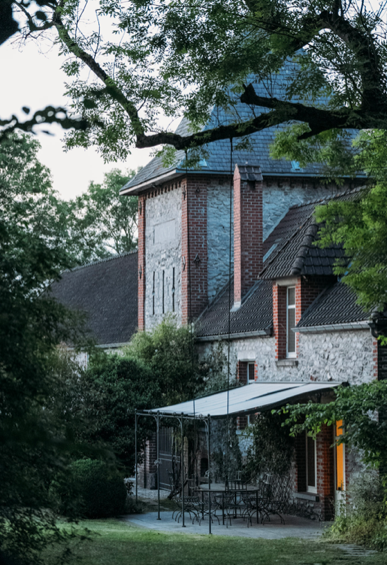
The 120-hectare farm was established in Tournai, Belgium, in 1492, as The Seigneurie De Graux. In 1873, the Simon family bought the land and expanded the farm’s sustainable, biodiverse production over generations. The Nest purchased Domaine de Graux in 2021.
“Concrete” is the word Marie Delvaulx, General Manager of the farm uses to describe her sense of purpose at Domaine de Graux. Delvaulx brings decades of experience in sustainability and finance to her role. She previously worked for The Shift and The Liaison. The Nest’s vision for Domaine de Graux inspired her career move.
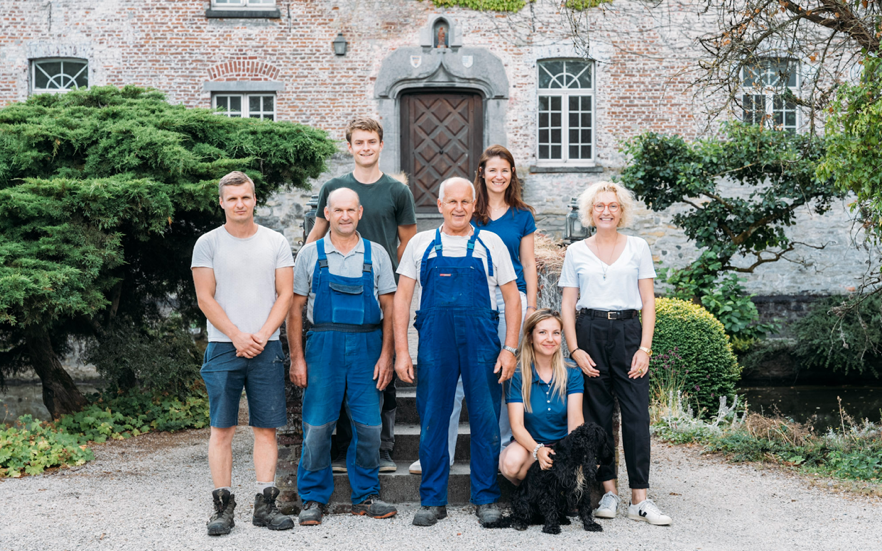
Marie Delvaulx, third from right, and the operations team at Domaine de Graux.
“It is one hundred percent sustainability, with no trade-offs,” she says. Delvaulx joined the experienced operations team at Domaine de Graux where she leads the mission’s strategy and develops partnerships.
The mission has three pillars: regenerative food production, education, and innovation. The first pillar, regenerative agriculture produces tasty, nutritional food while maintaining biodiversity, regenerating the soil, and preserving natural resources.
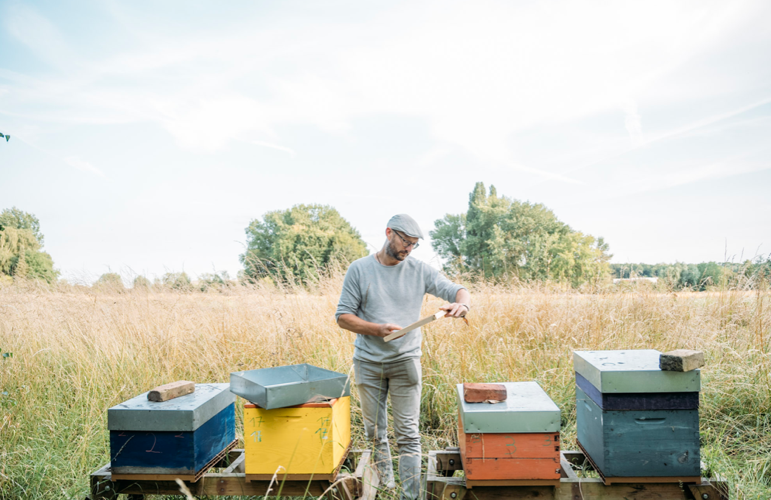
“Our main purpose is to prove that regenerative organic agriculture works at scale and increases farmer resiliency, both financially as environmentally. It is a farm, first and foremost. As it’s one thing to have the practices being implemented, but in the end, they should also work for the farmers. They’re the land keepers.”
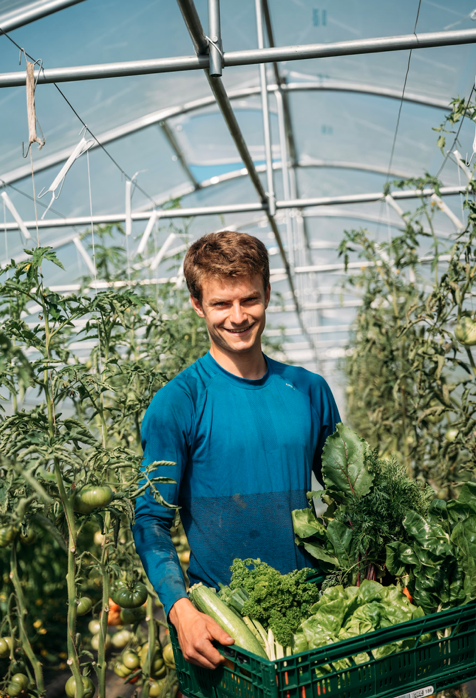
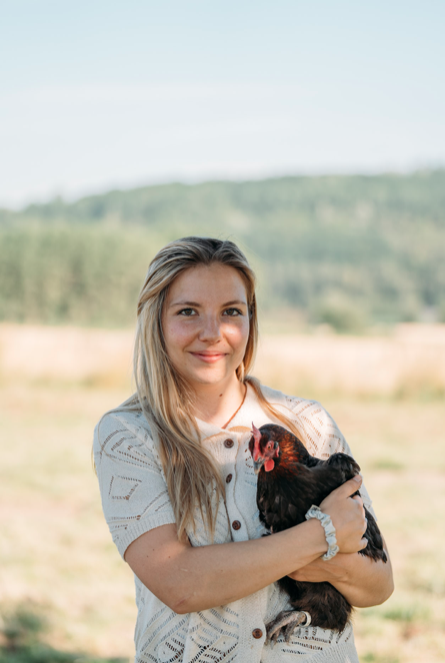
The farm is a true polyculture with its market garden, orchards, and livestock integrated with crop production. The practices are cyclical. For example, the rye harvested will provide grain for flour and forage for cattle. Under managed grazing on the cropland, the cattle will return carbon and nutrients, as manure, back into the soil.
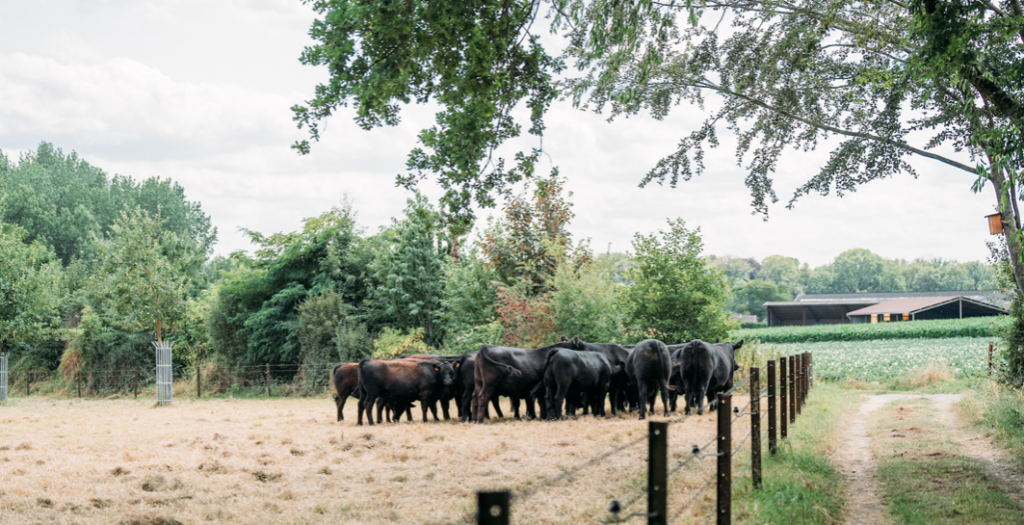
The land at Domaine de Graux produces food, but it is also proving ground for the principles of regenerative agriculture and engagement across the value chain. Here, ideas and crops both grow, and the knowledge is shared.
“The second pillar of our mission is to be a place where we build a community who come together to exchange ideas. Domaine de Graux can be a neutral place where everybody feels comfortable sharing their knowledge, expertise, what works, and what doesn’t work,” says Delvaulx. “It is a place where we can accelerate the pace of change by sharing knowledge, raising awareness, and enabling people to get back in touch with nature and the way we produce food. The more people know what’s possible, the more they can influence with their decisions.”
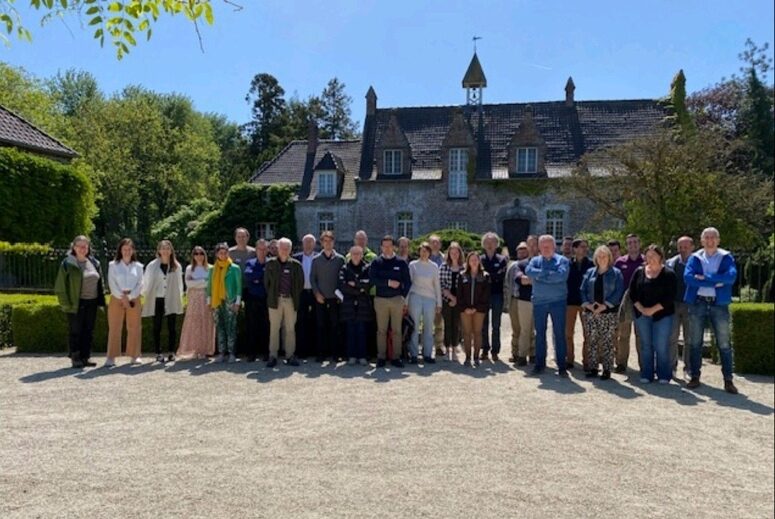
So far this year, Domaine de Graux has hosted several events, including an educational event in May for Flemish authorities and policymakers. The presentations and farm tour focused on the potential for regenerative agriculture and the role of policymakers in helping farmers build a resilient and healthy food system.

Domaine de Graux has also hosted knowledge-sharing events for farmers with presentations from The Living Soil Academy, represented by Alain Peeters, Vice-President of Agroecology Europe, and Louis De Jaeger, co-founder of Eat More Trees. The farm has three large meeting rooms and venues to support events of all kinds, as long as the environmental and social charter is respected.
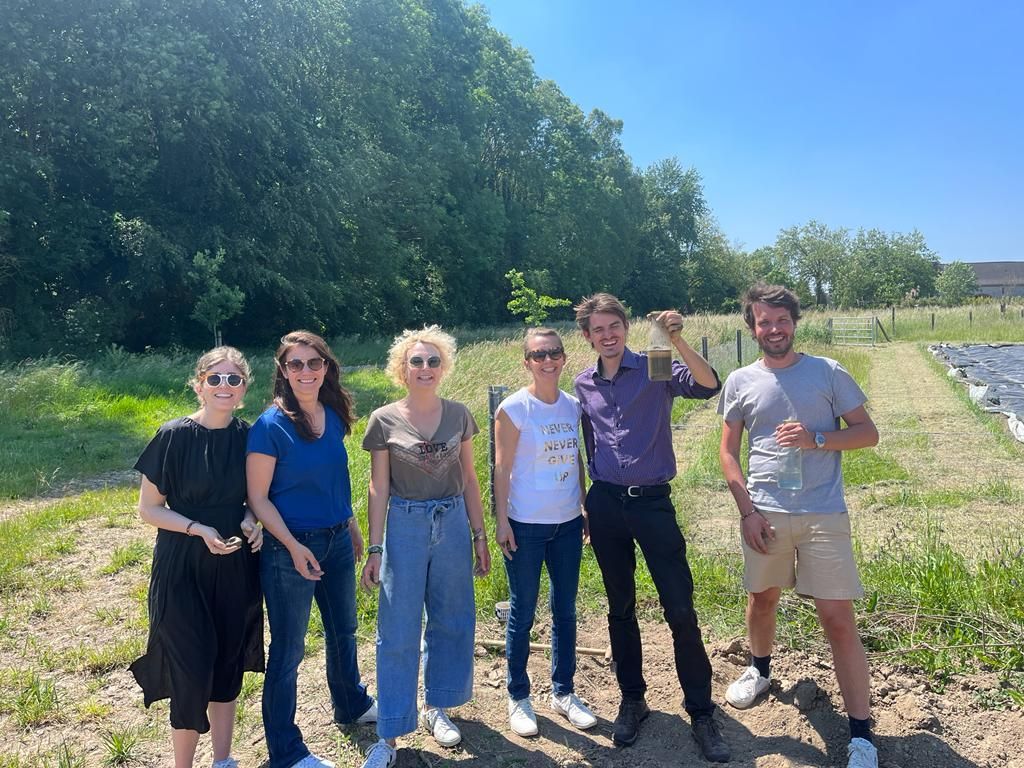
The education and community pillar will also include the youngest consumers and future farmers, explains Delvaulx. “We feel it’s important also to have, from the earliest age, children getting to know how vegetables are produced and getting connected to the food system. Because, I believe personally, when you learn it when you are little, you take that with you later as an adult.”
While Domaine de Graux has over five centuries of history, the third pillar of its mission focuses on the future: becoming a place for innovation and research. While many of the solutions for a more resilient food system exist, there is still much to be tested. With nature as its trusted advisor, De Graux will be a testing ground for the wider portfolio of The Nest. It will pilot ideas and technologies to reshape food production into a more resilient, productive, and sustainable system. Domaine de Graux will be a center for collaboration and partnerships, with companies, research institutes and other knowledge centers but also with other farms. An example of that is Domaine De Graux joining the Farm for Good network to share knowledge and ensure large enough volumes of regenerative, organic produce are available to attract large buyers at correct prices.
The Nest and the Domaine de Graux team will see this third pillar of the mission at work this October when The Nest’s portfolio of companies gathers for an Open House. The farm will be a source of inspiration where the attendees can reconnect with their purpose and renew their energy to effect change at scale.

“When you come to Domaine de Graux, it’s a magic place where you feel the reconnection with nature. It’s beautiful as a place, where you realise you’re only a small part of it all. The work, to be a hundred percent into the sustainability and our impact, is most important though. I love working with the people here who are passionate about the mission. I feel that everything we do is making an impact,” says Delvaulx.
You can learn more about Domaine de Graux, upcoming events and venues, products, and regenerative agriculture at the farm’s new website.
